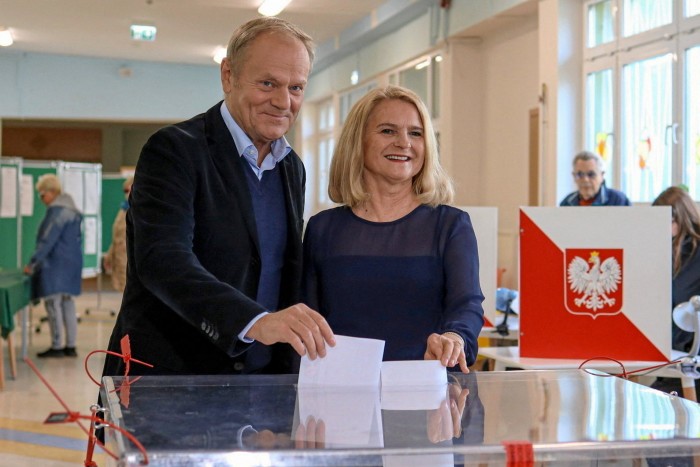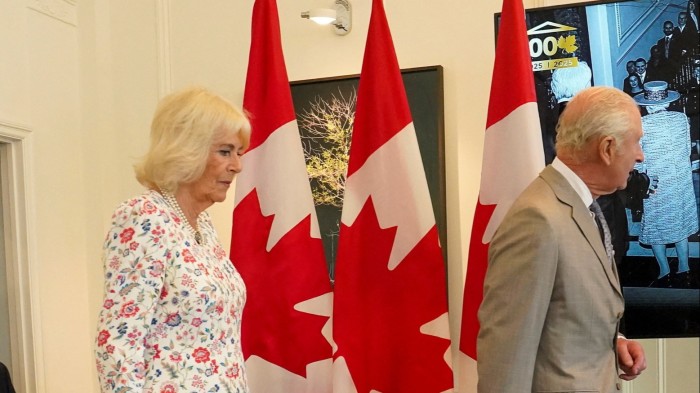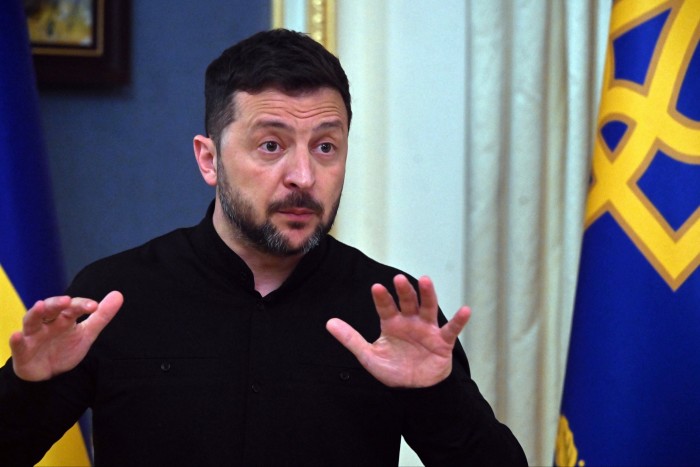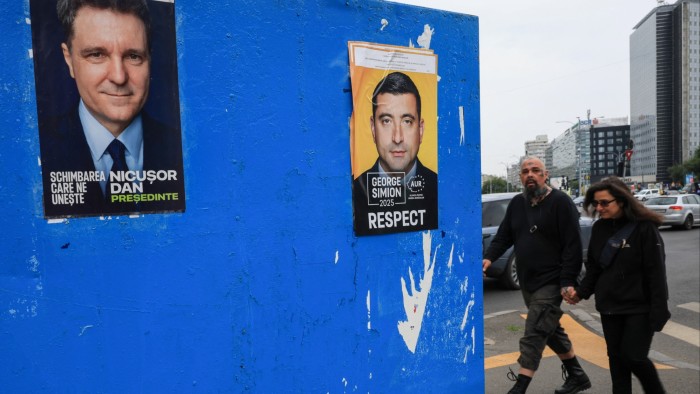Poland’s presidential race goes down to the wire

Unlock the Editor’s Digest for free
Roula Khalaf, Editor of the FT, selects her favourite stories in this weekly newsletter.
Rafał Trzaskowski and Karol Nawrocki, the contenders in Poland’s cliffhanger presidential run-off, held rival mass rallies in Warsaw on Sunday in a final push ahead of the June 1 vote.
The race has been upended by Trzaskowski’s unexpectedly narrow victory in the first round. The Warsaw mayor, running for Prime Minister Donald Tusk’s pro-EU Civic Platform party, secured only a two-point lead over Nawrocki, a historian nominated by the right-wing Law and Justice (PiS) opposition party.
Tusk has campaigned alongside Trzaskowski, even as polling suggests his involvement is increasingly hurting rather than helping his candidate. A poll by SW Research for the pro-government outlet Onet showed nearly 31 per cent of respondents said the prime minister could hurt Trzaskowski’s campaign, while only 21 per cent saw his involvement as beneficial.
The election has become an informal referendum on Tusk, who returned to power in 2023 after eight years of PiS rule. Tusk has warned that a Nawrocki presidency would weaken Poland’s standing in the EU and jeopardise his reform agenda.
Trzaskowski remains closely tied to Tusk and has shouldered some of the blame for the government’s broken pledges, notably its failure to restore abortion rights severely limited under the PiS administration.
“Trzaskowski is obviously associated with Tusk, and now a large part of voters are simply angry at Tusk’s government,” said Dorota Piontek, a political scientist at Adam Mickiewicz University in Poznań.
Tusk has acknowledged disappointment with his government, but argues that getting “a yellow card is not a drama” and insists that voters must realise the danger of maintaining the PiS-led blockade of his reform agenda under outgoing President Andrzej Duda, another PiS nominee.
An Ipsos poll released on Friday by state broadcaster TVP showed both candidates tied at 47 per cent. The outcome now largely hinges on the almost 40 per cent of voters who supported other candidates in the first round.
Trzaskowski faces a tougher balancing act. He needs to appeal to far right Confederation supporters wary of PiS’s statist policies as well as to progressive voters disillusioned by Tusk’s government.
Trzaskowski has also faced criticism for abandoning progressive positions on LGBTQ rights that had made Warsaw a liberal stronghold under PiS rule.

Nawrocki, despite personal scandals, has retained significant support among older PiS voters who are particularly loyal to the party’s 75-year-old founder Jarosław Kaczyński — Tusk’s long-standing rival. Kaczyński handpicked Nawrocki as PiS’s nominee for the presidency.
This month Nawrocki came under fierce criticism for not disclosing his acquisition of an apartment from a vulnerable pensioner under allegedly dubious circumstances, but he dismissed the attacks as politically motivated “lies”.
“He [Nawrocki] did better than we thought, especially with this housing scandal,” said Wojciech Szacki, chief political analyst at think-tank Polityka Insight.
The run-off’s kingmaker has become Sławomir Mentzen, the far-right Confederation candidate who finished third in the first round with 14.8 per cent of the votes.

On Thursday, Nawrocki signed an agreement with Mentzen promising that, as president, he would not ratify Ukraine joining Nato — a deal Tusk described as an act of treason.
Trzaskowski also met Mentzen on Saturday, agreeing to some of his demands on taxation but drawing a red line at Ukraine’s Nato membership.
Turnout in the first round was a record 67.3 per cent, driven by high participation from voters aged under 30. However, Szacki of Polityka Insight cautioned that many of these younger voters supported extremist candidates on the left and right who are no longer in the race.
“The candidates of the two main parties have no attractive agenda for young people, so I don’t know if these younger voters will be willing to take part in the second round,” said Szacki.
“I’m totally shocked by how close this vote is going to be,” said Malwina Nowosielska, a 30-year IT specialist who held Polish and EU flags at Trzaskowski’s march on Sunday.
“There are a lot of young people who are fed up with the duopoly, but they will eventually understand that this election is important, hopefully for a democratic Poland that is strong in the EU and not a nationalist one.”





